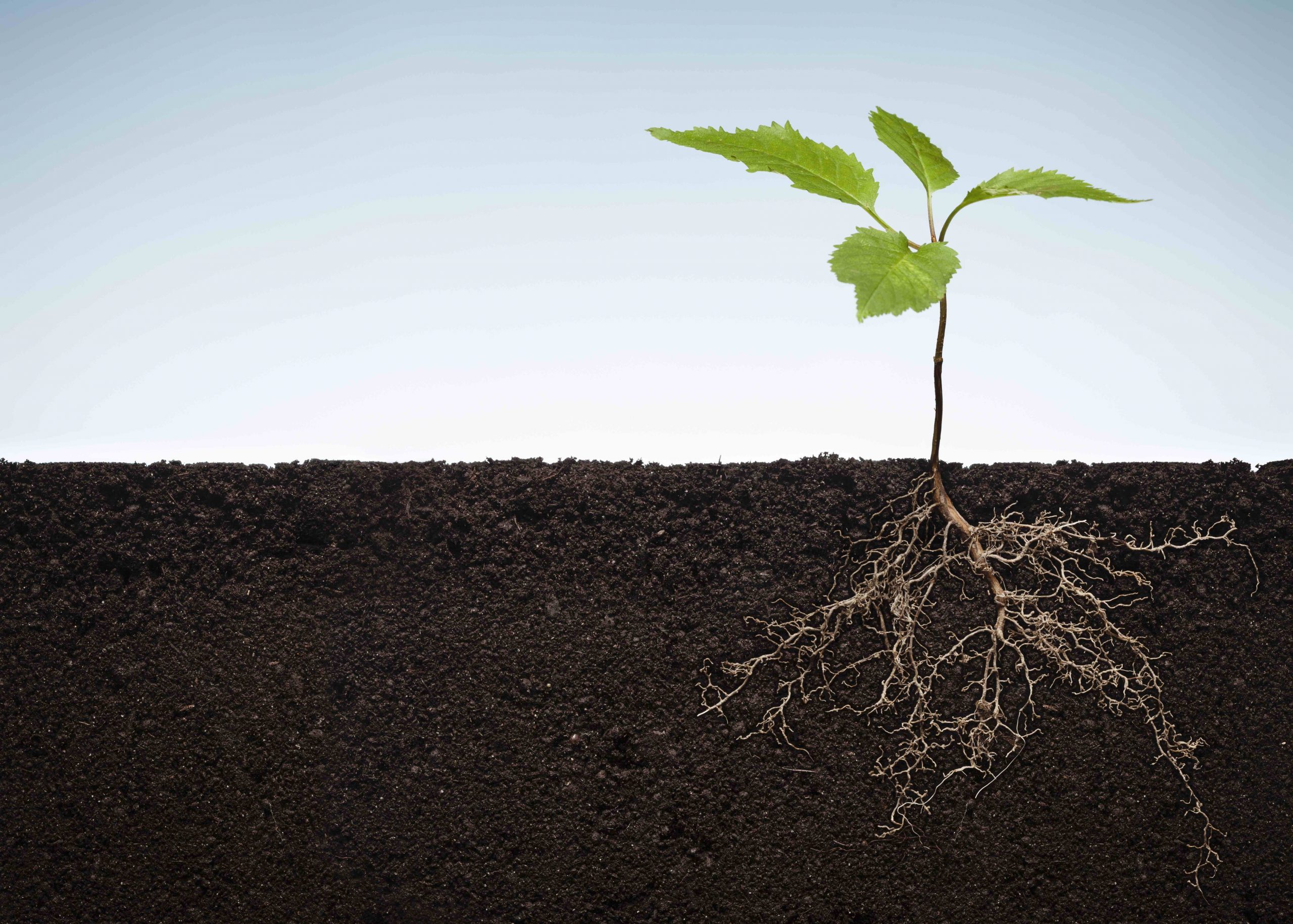
July 29, 2020, by Lexi Earl
Understanding plant microbe interactions
Dr Gabriel Castrillo is a Nottingham Research Fellow whose research focuses on the definition of the molecular mechanisms of plant-microbe interactions. He has won funding from The Leverhulme Trust, the Royal Society and recently, a joint award from the BBSRC (UK) and the National Science Foundation (US) in collaboration with colleagues from the University of Kansas.
Dr Castrillo’s research is based in fundamental science, and examines the interactions between plant roots and microbes in the soil and their influence on plant nutrition. His Leverhulme Trust award explores the ways the plant microbiota modify root branching. Plants and microbes within the soil have a symbiotic relationship, and this allows branching roots to explore the soil environment, providing the roots opportunity to maximise their ability to capture water and nutrients. Roots are key to plant stability and growth, and co-cultivation of plant species with specific root microbiota bacterial strains can drive significant and specific changes in root branching patterns. Focusing on the regulatory gene networks that govern interactions between microbes and root branching, this research provides an opportunity to make use of plant microbiota benefits in order to secure food production. In the same line of microbes influencing root function, Gabriel has a Royal Society project that aims to study the transcriptional regulation of the processes that seal the root to the free flow of water and nutrients.

Gabriel has recently returned to the lab to conduct further research
Gabriel explained how it feels to have secured his first major funding award: For me is like a dream come true. I have been working hard on having funds for my lab to have the possibility to answer questions that remain unexplored in our field. Now, I feel we can do good science, so I have the responsibility to demonstrate our hypothesis and deliver high impact results. I feel excited about the whole process of transforming these projects into publications, data and collaborations and also into new projects. I am sure it will help to take my lab and my career to the next level.

The BBSRC/NSF research will examine the evolution of plant microbiomes under stress conditions, in this case, drought. Drought has devastating effects on plant productivity, and the intensity and frequency of droughts is expected to increase in coming years due to climate change. Evidence suggests that soil microbiota may play a role in plant drought tolerance. Relationships between microbes found in the soil and plants is well evidenced in the fossil record, and indicates an evolutionary relationship influenced by water availability. Under drought conditions, plants often increase their roots which creates new opportunities for microbial colonisation.
Root-associated microbiomes can affect the physiology and health of host plants, and these interactions are shaped by genetic variation in both the host species and the microbiome members. This project will disentangle the relationships between microbial and plant fitness in the face of a shared abiotic stress. This work has important implications for future drought-resilient agricultural crops.
The BBSRC/NSF award is in partnership with colleagues from the University of Kansas, whom Gabriel first met as a postdoctoral research fellow in the USA. He explained:
I met Dr Maggie Wagner (University of Kansas) when she was a postdoctoral researcher at Duke University, and I was at the University of North Carolina, Chapel Hill. Nowadays, she is a very talented young principal investigator at the University of Kansas. Her research focuses on defining the genetic basis of plants’ interactions with the soil microbiota. Her research goals and mine complement each other very well, so when I contacted her to explore the possibility of submitting a joint application to the BBSRC/NSF call, we immediately realised that our alliance was competitive and that we could create an application that will adapt to both labs’ goals. It was a very exciting experience. I think we enjoyed the process of thinking about how to improve our knowledge of the role of microbiomes in improving the health of crops and wild plants under abiotic stresses. I like the experience of working in a very collaborative environment with researchers from different countries and backgrounds. I see this project as an opportunity to learn from another lab and gain experience in managing international projects. I expect important contributions to our field and I hope that this project can help improve agricultural productivity with a concomitant increase in the nutritional quality of food.
No comments yet, fill out a comment to be the first

Leave a Reply